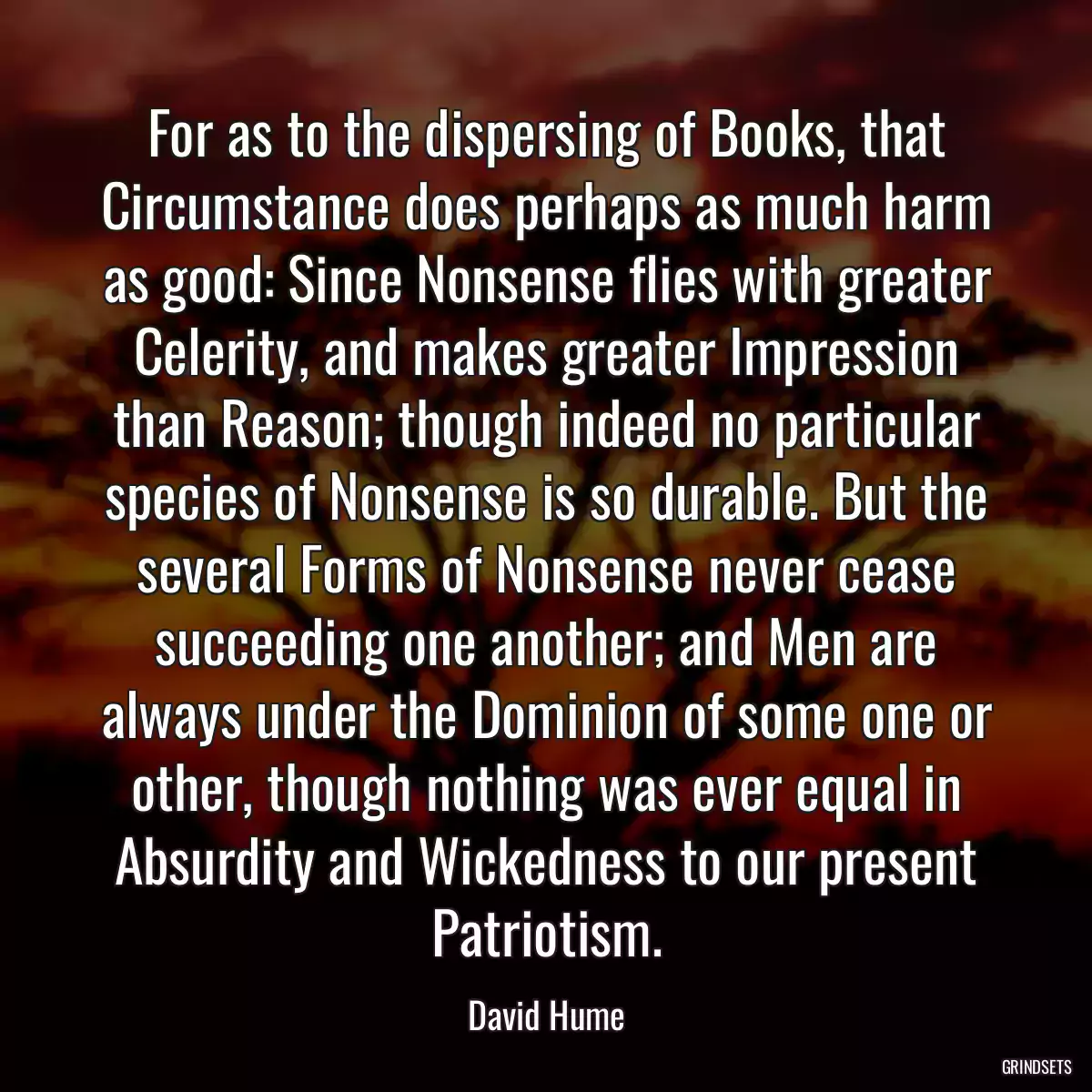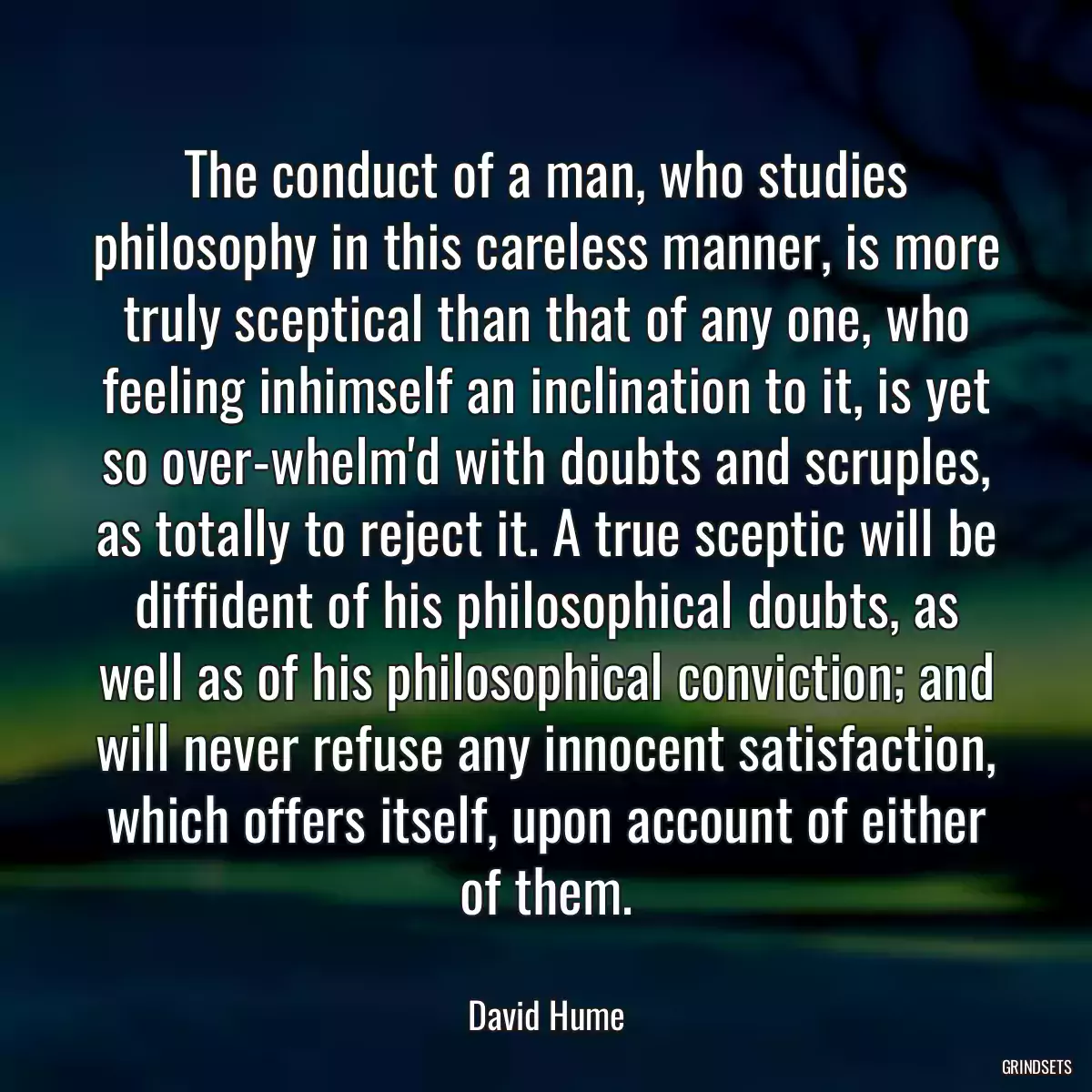
For as to the dispersing of Books, that Circumstance does perhaps as much harm as good: Since Nonsense flies with greater Celerity, and makes greater Impression than Reason; though indeed no particular species of Nonsense is so durable. But the several Forms of Nonsense never cease succeeding one another; and Men are always under the Dominion of some one or other, though nothing was ever equal in Absurdity and Wickedness to our present Patriotism.

